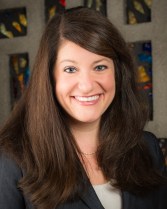by Rabbi Jaclyn Cohen
 I first breathed the words “mikveh,” “maybe,” and “going to” my third year of rabbinical school at HUC-JIR, the Reform Movement’s seminary. Well-intentioned classmates and friends – whom I admire and adore – were surprised. Some were skeptical. Their reactions were likely born from the same source as my own misgivings about mikveh: progressive upbringings and a strong feminist ethos that felt at odds with the traditional language and practice of niddah – monthly immersion tied to the rhythm of the female body.
I first breathed the words “mikveh,” “maybe,” and “going to” my third year of rabbinical school at HUC-JIR, the Reform Movement’s seminary. Well-intentioned classmates and friends – whom I admire and adore – were surprised. Some were skeptical. Their reactions were likely born from the same source as my own misgivings about mikveh: progressive upbringings and a strong feminist ethos that felt at odds with the traditional language and practice of niddah – monthly immersion tied to the rhythm of the female body.
Yet two things compelled me: first, I made a promise to myself that during the year 5771 I would experiment with more traditional aspects of Jewish life: keeping kosher, observing shabbat, and praying in more traditional spaces, to name a few. My goal was to engage with rituals and practices outside the Reform world in which I had grown up, knowing this would deepen my rabbinic knowledge and experience.
While the first impetus was mostly professional, the second was wholly personal. By the fall of my third year I had endured nearly one year of independence following the painful end of a long-term relationship. As the anniversary approached, I craved a creative Jewish ritual to mark and honor one full year on my own.
The ladies of the Rabbinical Assembly Mikveh at American Jewish University in Los Angeles understood all this. One warm November afternoon they welcomed me to that sacred space, guiding me through a profoundly spiritual and unique immersion into the thick waters of their mikveh.
My experience there became more than a rite of passage or source of emotional release. It richly and generously colored the remainder of my time in rabbinical school. It opened my eyes to the possibility of marking life’s many moments of transition with Jewish ritual – far beyond the standard bris, bar mitzvah, wedding, and funeral to which we Jews are accustomed. It helped me learn to identify the very real and raw liminal moments in which we humans often find ourselves: standing on a threshold, hanging in the balance, seeking resolution.
That mikveh visit eventually led to the creation of a joint senior thesis – along with my chevruta (study partner) Rabbi Deana Sussman – on the theory, practice, and innovation of Jewish lifecycle ritual. Our research led us to Mayyim Hayyim, the true epicenter of ritual innovation in the Jewish world today.
The key objective of Mayyim Hayyim is simple: to provide all Jews from all denominations and backgrounds the opportunity of a sacred Jewish ritual experience. That’s something we rabbis try to inspire in our congregants and communities each day.
Yet just six months into my rabbinate I have already come to realize the many emotional, intellectual, political and financial barriers that stand between countless individuals and what those living waters dare to do. Reform, Conservative, and even some Orthodox Jews do not always feel welcome in a traditional mikveh. Mayyim Hayyim opens the door for experimentation and a true communal use of mikveh.
Not every Jewish ritual requires a mikveh, but every ritual’s success depends on the openness, dynamism, creativity, and warmth exemplified by Mayyim Hayyim. While their staff and volunteers have created a physical space that is safe, inviting, and warm, the true impact of their work extends countless miles beyond Boston. The support they provide is unparalleled, their innovations are inspiring, and their reach must grow.
In 2014, the concept of mikveh simultaneously became more taboo and intriguing, particularly in the aftermath of a certain Washington DC-based Orthodox rabbi’s violation of that sacred space. It is my hope and prayer that 2015 shows us a powerful reclaiming of the mikveh and a wholehearted embrace of the innovative rituals that make modern Jewish life so exciting, dynamic, and meaningful.
I’m proud to support Mayyim Hayyim with my words, contributions, and in my rabbinate because I know they are an organization that takes seriously the sacred task of redefining and reinterpreting Jewish tradition – for us and for generations to come.
Rabbi Jaclyn Cohen serves as assistant rabbi at Temple De Hirsch Sinai in Seattle and Bellevue, Washington. A native of Los Angeles, she was ordained by the Hebrew Union College – Jewish Institute of Religion in May 2014.

